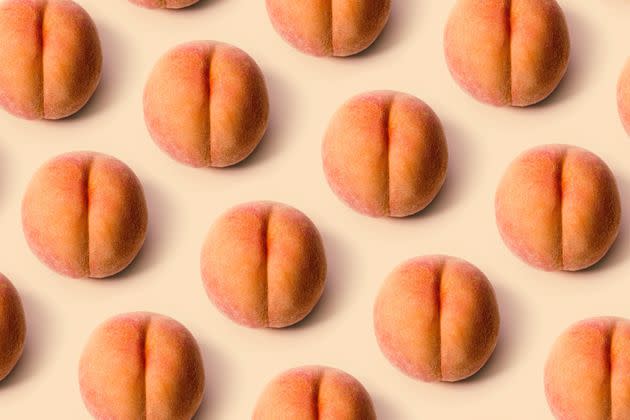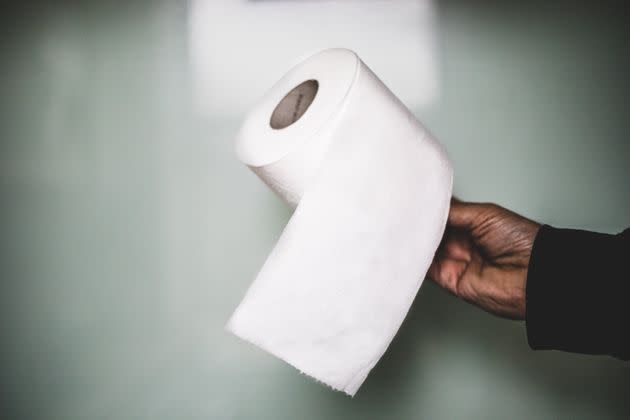The 1 Thing Colorectal Doctors Would Never Use On Their Butts

We’ve all been told to wipe from front to back and use a squatty potty at some point in our lives. We’ve heard this advice for a good reason ― because it works.
On the other hand, when it comes to what not to do in the bathroom, some colorectal and gastrointestinal doctors have one product they don’t always recommend: wet wipes.
This is not to say that every doctor is totally against using them. However, there are some potential drawbacks (aside from future plumbing issues) you’ll want to consider before reaching for one on your next trip to the bathroom. Here’s what to know:
Wet wipes can cause some irritation and other issues post-potty.
Although wet wipes are marketed to provide a better clean down there, especially after going No. 2, you’re generally not supposed to wipe with wet wipes as they can actually be more harmful than helpful.
“The use of wet wipes is a common cause of perianal dermatitis (a rash around your butthole),” said Dr. Alex Elias, a board-certified female colorectal surgeon in Bakersfield, California. “The irritation caused by wet wipes can be secondary to certain ingredients and preservatives, the disruption of good bacteria, and even the residual moisture left behind.”
Additionally, Dr. Maysaa El Zoghbi, a gastroenterologist at NYU Langone Hospital-Brooklyn, said the materials used in some wet wipes may be abrasive or rough, exacerbating irritation, especially in individuals with sensitive skin or conditions such as hemorrhoids or anal fissures.
Wet wipes generally contain alcohol or fragrances which can irritate the perianal area, said Dr. Ari Lamet, board-certified gastroenterologist. Plus, excess moisture that isn’t dry before leaving the restroom from the use of wet wipes can promote the growth of bacteria or fungi which can also lead to irritation, he added.
According to Dr. Carlton Thomas, a gastroenterologist in San Francisco, some ingredients you’ll want to keep an eye out for include parabens, phthalates, phenoxyethanol and cocamidopropyl betaine. (You’ll want to pay attention to the ingredients in baby wipes, too, and make sure those are gentle for skin as well.)
In the case that you want to use a wet wipe, you’re best off looking for an alcohol and fragrance-free wipe. Although this won’t completely eliminate the potential for irritation, it can help take away some risk factors.
Outside from causing irritation, wet wipes also aren’t good for pipes which is why doctors recommend steering clear when possible. “They are terrible for the environment because they can clog sewer systems and take forever to break down,” Thomas said.

What is the best wiping method?
There’s no one-size-fits-all answer when it comes to the best wiping methods, but doctors recommend toilet paper and a bidet for starters.
Bidets have been used in a number of European countries for years and the United States is slowly hopping on the bandwagon. “From a medical perspective, incorporating a bidet into one’s hygiene routine can help maintain optimal perineal health, and reduce the risk of various dermatological and infectious complications associated with inadequate cleansing practices,” El Zoghbi said.
If you’re in the market for a bidet, brands like Tushy and RinseWorks make ones that are easy to install for at home use. Otherwise, you can use a squeeze bottle to mimic the effect at a more budget-friendly price point.
Another option Lamet suggests is unscented toilet paper. “Gently wipe from the front to the back until the paper is clean,” he said. “Never scrub the perianal area.”
During the process, you’ll want to take a quick peek at the toilet paper and in the bowl to see the color and consistency of your bowels as that can tell you a lot about your health.
You’ll want to talk with your physician if you notice any bleeding or irritation while wiping as they can be signs of an underlying problem. They’ll also be able to better discuss what method is best-suited for your needs to make sure you’re staying healthy down there.

